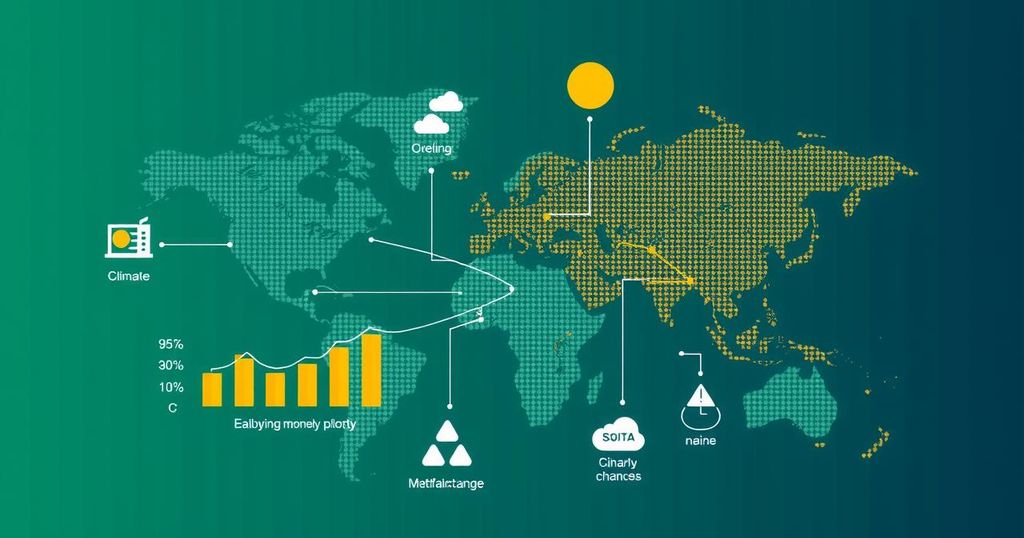As developed nations pledge substantial funds to combat climate change, concerns arise over corruption and mismanagement within recipient countries. With high pledges from the UK and a projected £240 billion annually by 2035, the political commitment may not align with practical effectiveness, as evidenced by ongoing issues in nations like South Africa and India. The success of climate finance relies on transparent management amidst increasing political skepticism.
Amidst the recent announcements regarding climate finance in South Africa and the Cop29 climate summit, concerns are raised about the true allocation and effectiveness of the pledged funds. The £2 billion commitment from the state power company Eskom aims to reduce emissions at its coal-fired power stations, which are linked to significantly high asthma rates in the surrounding communities. Despite such initiatives, critics, including former Eskom CEO André de Ruyter, lament the pervasive corruption within the company, which reportedly loses over £44 million a month due to graft.
As discussions wrap up at Cop29, it is clear that nations such as South Africa are set to benefit significantly from climate funding, with developed countries, including the UK, promising a substantial £240 billion annually by 2035 to assist poorer nations in combating climate change. However, critics caution that the amounts pledged fail to account for inflation and lack a transparent framework for effective distribution.
In climate financing, the UK ranks just behind the United States, having committed £7.7 billion. This contributed along with other nations indicates a broader commitment to climate action, underscoring the notion that these pledges may come under scrutiny, especially when considering the potential for political shifts impacting future agreements, such as the anticipated reluctance from the next U.S. administration.
The concern surrounding climate finance corruption is further magnified by findings from Transparency International, which indicate that vast sums of money could be undermined by corruption during allocation. The organization’s reports spotlight the Just Energy Transition Partnerships (JETPs), designed to aid transitioning from coal to sustainable energy. However, corruption risks threaten these initiatives in various recipient countries, notably South Africa, which must confront its problematic history in managing such funds.
Furthermore, a review of climate finance distribution reveals that nations with poor corruption indices, like the Maldives and Comoros Islands, are top recipients despite being fraught with governance challenges. The interplay of climate vulnerability and corruption underscores a critical dilemma where the most affected regions, particularly in sub-Saharan Africa, also grapple with substantial governance failures.
As the upcoming Cop30 in Brazil looms, nations most impacted by climate change are likely to continue lobbying for access to funding amidst a political landscape fraught with challenges to the consensus on climate action. The divergence among political leaders regarding the reality and severity of climate change poses an increasing risk to collective global efforts, exacerbating the urgency for transparent and accountable climate finance management.
The necessity for climate finance is underscored by the increasing commitment from wealthier nations to support developing countries, particularly those struggling with the immediate impacts of climate change. The recent announcements from COP29 highlight pledges made to facilitate a transition from fossil fuels to cleaner energy sources. However, issues surrounding corruption, mismanagement, and the political will to address climate challenges are paramount concerns that affect the actual effectiveness of financial commitments.
In conclusion, while significant financial commitments are being made by developed nations to address climate change, fundamental issues concerning transparency and corruption threaten to undermine these efforts. The effective allocation of climate finance will be crucial, especially in nations where poor governance hampers progress. The upcoming Cop30 presents an opportunity to address these challenges, though the shifting political landscape complicates the collective resolve needed to combat climate change effectively.
Original Source: www.telegraph.co.uk






